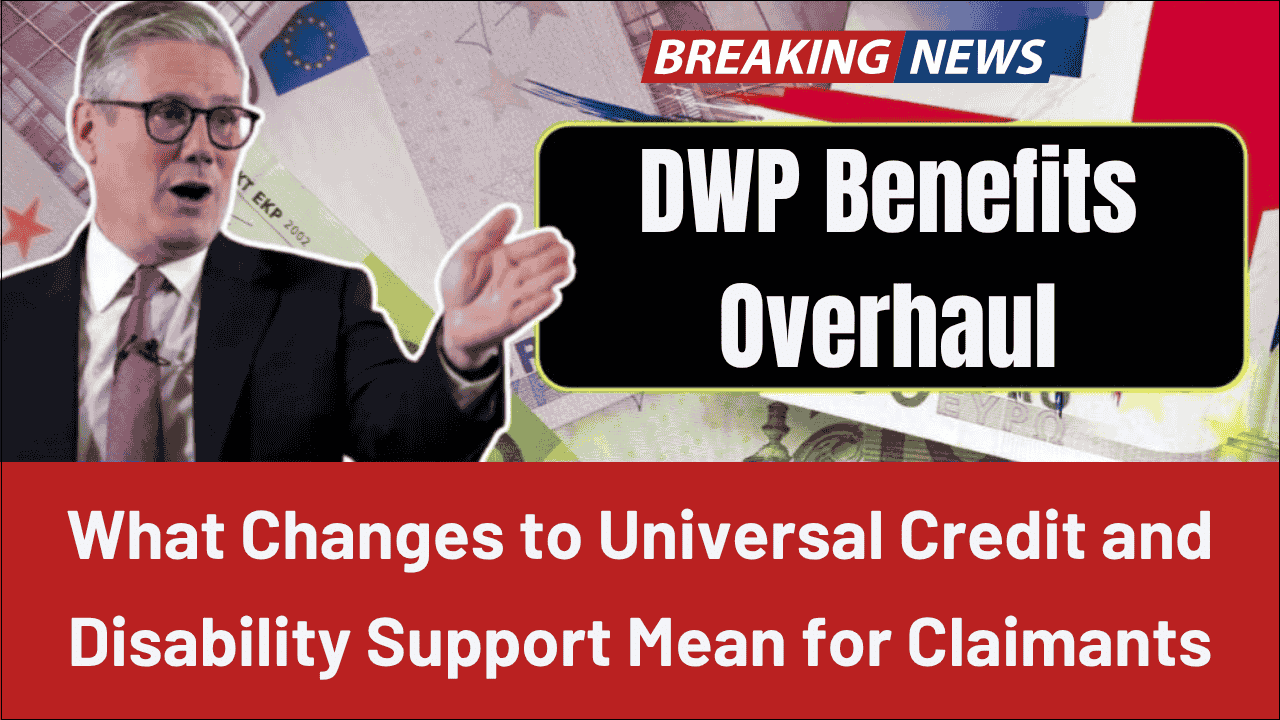
The UK government has announced a historic expansion of free school meals starting September 2026. All children from Universal Credit families will qualify regardless of income level.
This policy removes the current £7,400 income restriction that prevents many low-income families from accessing free meals. Over 500,000 additional children will benefit nationwide.
Families will save nearly £500 per year per child. The government expects this change to lift 100,000 children out of poverty across England.
Current vs New Eligibility Comparison
| Aspect | Current System (Until Sept 2026) | New System (From Sept 2026) |
|---|---|---|
| Income Threshold | Must earn below £7,400 annually | No income restrictions |
| Eligibility | Universal Credit + income test | Universal Credit only |
| Application Process | Manual application required | Automatic eligibility |
| Number of Children | 2.1 million currently eligible | 2.6+ million will be eligible |
| Annual Savings | Varies by income | £500 per child per year |
Impact on Families Nationwide
Over half a million additional children will receive free meals daily when the new system starts. Currently, 2.1 million students get free school meals – that’s one in four pupils in England.
The financial relief will be immediate. Parents save £500 yearly per child under the expanded scheme. Families with multiple children could save thousands annually.
This money can go toward rent, utilities, clothing, and school supplies. Many families struggle to afford these basics alongside school meals.
Government analysis shows 100,000 children will escape poverty entirely. This demonstrates the program’s power to change lives permanently.
Schools report better outcomes when children eat properly. Well-fed students show improved concentration, academic performance, and classroom behavior.
Government Leadership Vision
Prime Minister Sir Keir Starmer calls this policy “one of the biggest interventions” to tackle poverty. He describes it as putting “money back in parents’ pockets” while helping children learn effectively.
Starmer positions the expansion as a “historic moment” supporting equal opportunities for all children. The policy aligns with the government’s broader “Plan for Change” initiative.
Education Secretary Bridget Phillipson frames this as the government’s “moral mission” against child poverty. She sees it as part of a comprehensive approach including free breakfast clubs.
The government’s child poverty taskforce is developing a 10-year strategy due later this year. This will include additional support measures and policy reforms.
How to Apply for Free School Meals
Families seeking free meals under current rules need specific documentation. The process is straightforward but requires attention to detail.
Required Documents:
- Universal Credit award letter or recent statement
- Child’s school details including name and address
- Parent’s National Insurance number
- Proof of identity (passport, driving license, birth certificate)
- Recent proof of address (utility bill, council tax statement)
- Bank account details for verification
Application Steps:
- Contact your child’s school office or local council education department
- Request free school meals application forms
- Complete all sections accurately with no blank fields
- Gather required documents and make clear copies
- Submit online, by post, or in person
- Respond promptly to any follow-up requests
- Wait for confirmation (typically 2-3 weeks)
- Free meals begin within 1-2 weeks of approval
Important Timeline: Current eligibility rules remain until September 2026. Families meeting existing criteria should apply now. Approved applications will automatically transfer to the new system.
Expert Response and Analysis
Education professionals and child welfare organizations strongly support the expansion. They see clear connections between nutrition and learning outcomes.
Nick Harrison from the Sutton Trust calls it “a significant step towards taking hunger out of the classroom.” He emphasizes that hungry children cannot learn effectively.
Kate Anstey from the Child Poverty Action Group describes it as “fantastic news and a game-changer.” She highlights the breathing space this gives struggling parents.
Pepe Di’Iasio from the Association of School and College Leaders confirms this is “absolutely the right thing to do.” However, practical implementation details need working out.
\Daniel Kebede from the National Education Union welcomes this “necessary and overdue first step.” He notes the existing threshold hadn’t changed since 2018.
Addressing Remaining Challenges
Some families still won’t qualify despite facing financial hardship. These households earn slightly above Universal Credit thresholds but struggle with costs.
The Liberal Democrats praise the change as “a victory for campaigners” but call it “only a first step.” They want additional measures like automatic enrollment.
Other suggested improvements include lifting the two-child benefit cap and capping school uniform costs. These would provide more comprehensive family support.
Schools face logistical challenges scaling up meal services for hundreds of thousands more students. This requires infrastructure investment and staff training.
Supply chain coordination becomes crucial when serving 500,000 additional meals daily. Kitchen facilities and delivery systems need significant upgrades.
Implementation Timeline and Preparation
The expanded system launches in September 2026 with the new academic year. This gives schools and councils time to prepare infrastructure.
Government departments are coordinating implementation details with educational institutions. Smooth delivery requires careful planning and resource allocation.
Local authorities must scale up administrative systems to handle increased applications and ongoing management. Staff training programs will ensure proper service delivery.
Schools need to expand kitchen facilities, hire additional staff, and coordinate supplier relationships. The government will provide guidance and support throughout this process.
Conclusion
This policy represents a fundamental shift in how Britain addresses child poverty. It recognizes nutrition as essential for educational success and life outcomes.
Research consistently shows proper school meals improve academic achievement, reduce behavioral problems, and enhance social development. These benefits extend far beyond individual students.
Communities benefit when children receive adequate nutrition. Better-educated, healthier young people contribute more effectively to society and the economy.
The policy also supports working families by reducing household expenses. This enables parents to invest in other areas like housing, transport, and career development.







